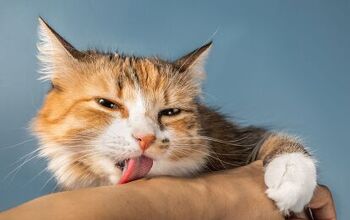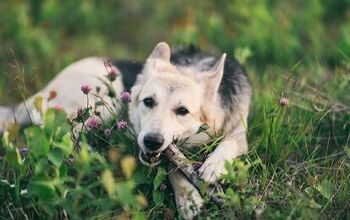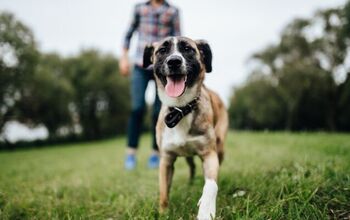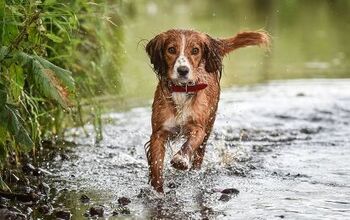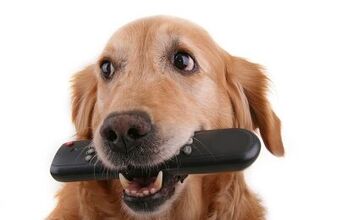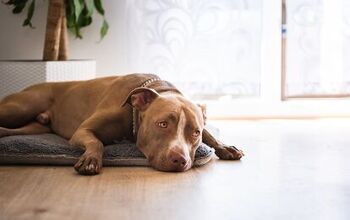Why Do Dogs Lick Their Wounds?

Do they know something we don't? Should we be ditching the antibiotics?
You cut your finger and the first thing you do is put it up to your mouth to try to stop the bleeding and ease the pain, right?
Then we head off to the medicine cabinet for a dab of ointment, a squirt of disinfectant, and a band-aid.
Now, when it comes to our pets and how they handle a wound, that first part is totally do-able, the second part, not so much. Whether it be a bug bite or an open injury, dogs tend to lick, lick, and lick some more as they take care of whatever is bothering them. In that respect, we’re pretty much alike in that the wound-to-mouth action is rather instinctive and a hard habit to break.
But do dogs have a special intel for this type of thing? Is it a survival mode thing that dates back thousands of years? Do our pets secretly know that continually licking a sore spot will expedite the healing process? Should we be ditching the antibiotics in favor of this more natural healing method?
I mean who hasn’t heard the urban legend that if you cut yourself, allowing a dog to lick the wound will help it heal faster? Note, not the case when it comes to cat saliva!
Myth buster alert: dog saliva doesn’t make a significant difference and here’s why.
According to retired veterinarian Dr. Benjamin Hart (also professor emeritus at the University of California), dogs themselves don’t consider the action of licking a wound to be a way of speeding up the healing process. It’s simply down to self-soothing.
Sort of like when we instantly raise that cut finger to our mouth. It doesn’t stop the bleeding or heal the wound it just makes it feel a little bit better.
But before we dismiss the process entirely, dog saliva is known to have certain antibacterial and antimicrobial properties. But as cautioned by the guru of all things dog – the American Kennel Association (AKC) – these are only slight. So, if a contaminant is involved, saliva can help “clean” out a fresh wound and lessen the chance of infection, but not prevent it.
In fact, both Dr. Hart and the AKC, confirm that these days there are much more effective means of treating wounds to ensure they heal safely and more quickly. And that includes eliminating the licking process (think those nasty plastic doggy cones post-surgery). To them, excessive licking can introduce mouth bacteria to a wound and also prevent the injury from drying and healing. In the case of a surgical incision, it can also result in sutures being pulled out.
Bottom line? Don’t assume your pup has his injury sorted. Get involved and bring in the experts if it doesn’t seem to be healing.

Sharing space with three seriously judgy Schnoodles and a feline who prefers to be left alone. #LivingMyBestLife
More by Mary Simpson









